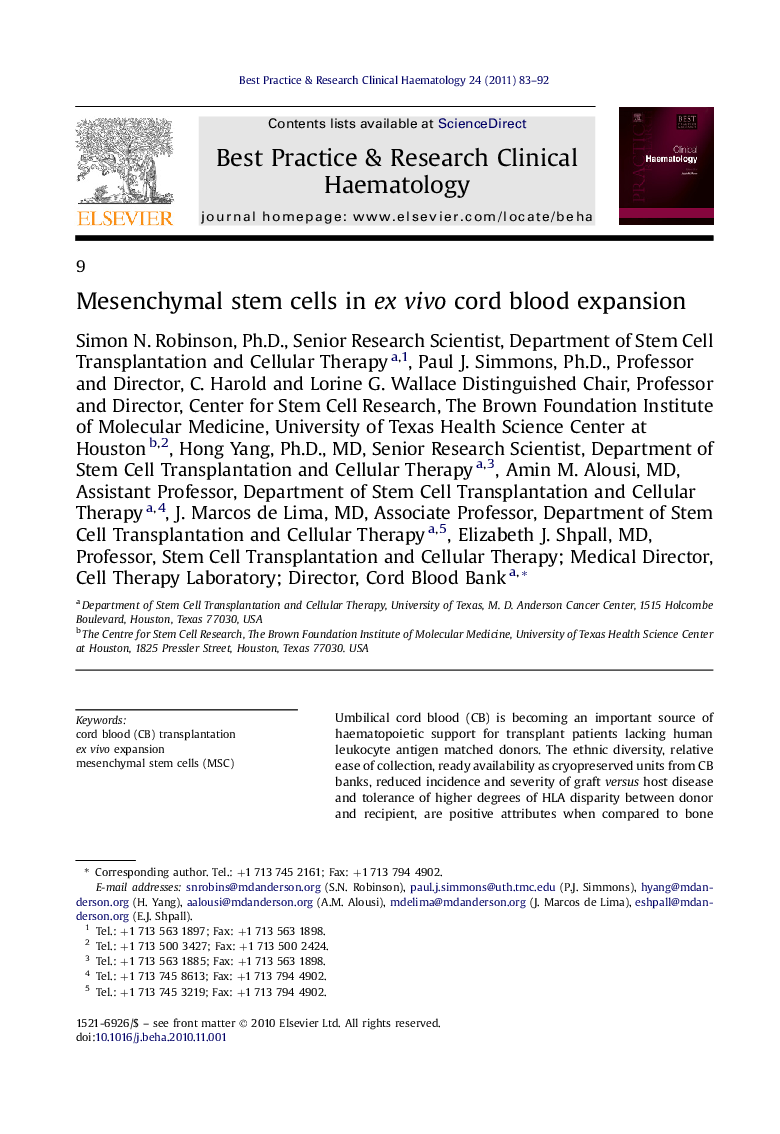| Article ID | Journal | Published Year | Pages | File Type |
|---|---|---|---|---|
| 2100305 | Best Practice & Research Clinical Haematology | 2011 | 10 Pages |
Umbilical cord blood (CB) is becoming an important source of haematopoietic support for transplant patients lacking human leukocyte antigen matched donors. The ethnic diversity, relative ease of collection, ready availability as cryopreserved units from CB banks, reduced incidence and severity of graft versus host disease and tolerance of higher degrees of HLA disparity between donor and recipient, are positive attributes when compared to bone marrow or cytokine-mobilized peripheral blood. However, CB transplantation is associated with significantly delayed neutrophil and platelet engraftment and an elevated risk of graft failure. These hurdles are thought to be due, at least in part, to low total nucleated cell and CD34+ cell doses transplanted. Here, current strategies directed at improving TNC and CD34+ cell doses at transplant are discussed, with particular attention paid to the use of a mesenchymal stem cell (MSC)/CB mononuclear cell ex vivo co-culture expansion system.
